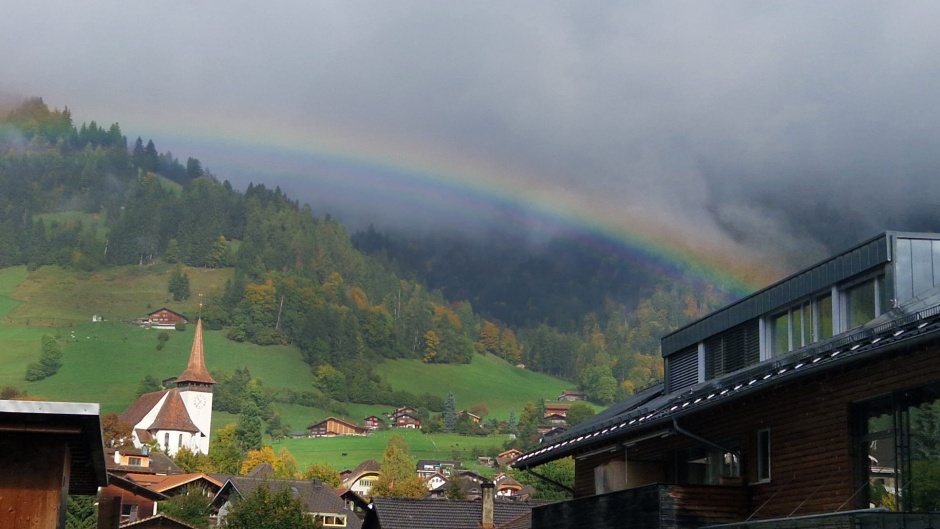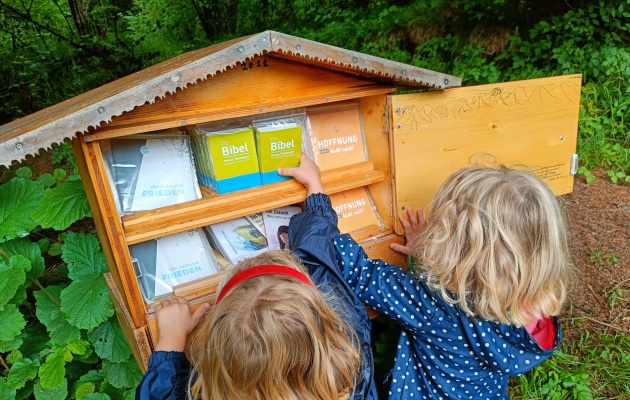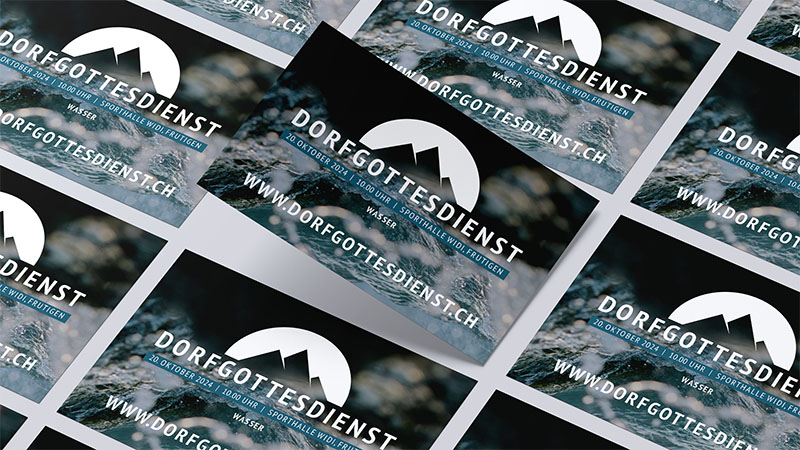Frutigen, a town full of Christians
This municipality of 7,000 people in the Swiss Alps has an unusually high number of churches. What impact do these Christians have on the local environment?
15 OCTOBER 2024 · 10:03 CET

Frutigen, in the foothills of a beautiful Alpine valley, is one of the most ‘Christian’ places in Switzerland. This municipality of 7,000 inhabitants is known as a frommer Ort, a place with an unusually high density of believers.
Any visitor walking through its steep streets will be struck by the Bible verses engraved on the wooden facades of its impressive traditional houses.
Taking a stroll through the nature next to the river, you end up finding a sort of wooden cupboard containing new testaments, flyers about the gospel in various languages, and handmade notebooks, all suitably laminated for rainy days and with an invitation to take copies home.

Free new testaments and other materials freely available by the river walk. Walking around the town, you will come across more than one of the six evangelical church buildings. Two of these congregations gather more than 250 people each on a typical Sunday.
A plaque in the children’s playground in the centre of town thanks the Pentecostal church youth group for providing ideas for the design of a great space for the youngest, which includes a zip line, climbing area, tunnel, swings, and picnic tables.
And in politics, the two evangelical-inspired parties (EDU: conservatives, EVP: moderate progressives) garnered 26% of the vote in the last elections, a much higher result than at the national level, where support for these two parties is usually below 4%.
For a tourist like me, the question I started to ask myself while enjoying Frutigen was: Does it show in the relationships and the atmosphere of the town that so many locals have a committed Christian faith?
Does it show in the atmosphere of the town that so many locals have a committed Christian faith?
This, in a place that is known for sending missionaries to other parts of the world and for translating and distributing Christian materials to under-resourced areas of Europe.
Frutigen, however, is currently experiencing a period of spiritual renewal, as the same people told me. In summer, churches from different backgrounds organise a joint calendar in which they alternate Sunday meetings in one or the other place of worship, thus bringing their members together.
Meanwhile, the new generations are in high spirits thinking together about how to reach Generation Z and Alpha through sport and evangelism. An example are the Open Heaven Days happening this week, a common effort pushed by the churches’ youth groups to reach their friends. A series of evenings in the municipal sports hall are a festival of music, good news talks, and opportunities for anyone to receive prayer.
One Sunday earlier, the annual Dorfgottesdienst (worship service for the whole town) is held. In this case, it is a chance for neighbours of all ages who might be interested in the Christian faith but “do not yet know God personally yet”. Here again, the programme, the children’s activities, coffee and cake at the end… everything involves members of the six different churches. Around 500 people attended the event last year.

“That is, I think, a sign that reconciliation and a new way of thinking has taken place over the years and that you can feel more and more positively that many Christians live here in Frutigen! We are managing to work together!”, a member of a church says.
To what extent does a living faith transform a town or city? The case of Frutigen, and indeed of any town or city, could point to a very practical starting point: to what extent are we willing to cooperate with others to carry out God's mission among our neighbours?
Joel Forster, journalist in Spain and director of Evangelical Focus.
A version of this column has been published in Finnish by Uusi Tie magazine.
One more year
Learn all about our #OneMoreYearEF campaign here (English).
Published in: Evangelical Focus - European perspectives - Frutigen, a town full of Christians
